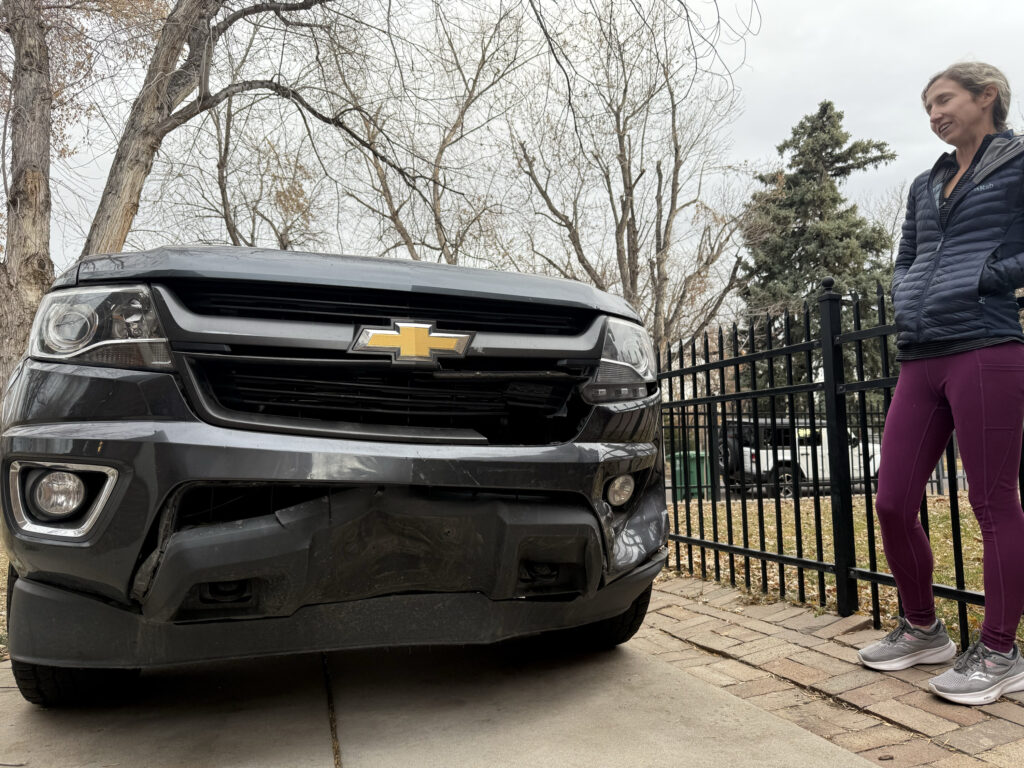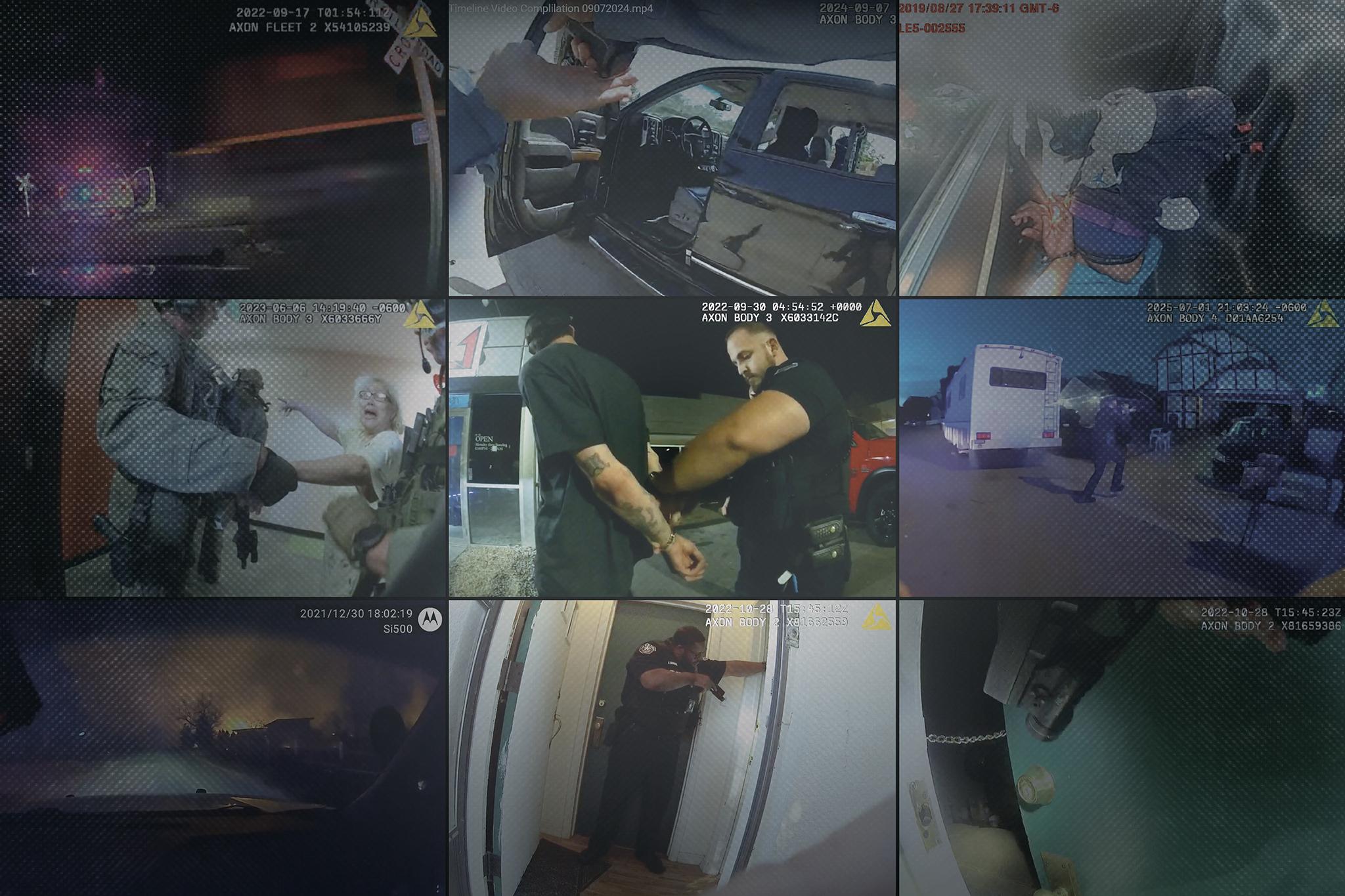
The number of uninsured motorists in Colorado has jumped to the ninth worst in the nation with an estimated 17.5 percent of drivers cruising around without car insurance — an unfortunate distinction insurance experts attribute to the climbing price of insurance statewide.
This is a snowball effect, though. Because the more uninsured drivers there are out there, the more the claims rise because uninsured drivers statistically drive worse and have more severe accidents. That then causes insurance rates to increase for everyone.
In other words, in Colorado, the cause and effect is off, and it’s hard to make it right once it is like this, said Carole Walker, executive director at the Rocky Mountain Insurance Association.
Colorado rose into the top 10 states with the most uninsured drivers per capita in 2023 — and has a much higher rate of uninsured drivers than in previous years and the national average, according to data released by the Insurance Research Institute, a nonprofit research group working for the insurance industry.
In the last study released in 2023, 14 percent of drivers nationally were uninsured. Washington, D.C., led the nation with the highest number of uninsured drivers at 25 percent. Colorado’s northern neighbor, Wyoming, had the least number of uninsured drivers at only 5.9 percent, according to the study.
“It’s associated with the affordability of insurance, but it has gotten worse. Some people are making choices between groceries and eggs and then taking their chances with driving illegally without insurance,” Walker said. “The hard part is there is always going to be some scofflaws who are going to flout the law, and we all end up footing the bill for that through our own insurance.”
Katy Guinn knows this story in painful, personal detail. She and her husband had both their cars hit by uninsured motorists in less than three weeks in Denver this fall.
In the first accident, Guinn was driving with her kids through an intersection and a man driving a car in the lane next to her swerved into her car.
“No one was hurt and he was nice about it, but he didn’t have insurance,” said Guinn, who said she called the Denver Police Department, but they said it would be hours before they could get there.
Guinn said the man acknowledged at the scene that he didn’t have insurance. They lost the family car for several weeks and had to pay for the fixes and the cost of a rental car.
Then, less than two weeks later, they came out of their east Denver home in the morning and Guinn’s husband’s truck had been smashed by a Toyota in the night, which had been abandoned next to the truck in front of their house.
They called the police, who ran the plates and found out who the car belonged to. The man also didn’t have insurance.

“I don’t want to be punitive on anybody, but how bad are the penalties for driving uninsured? Our family is definitely carrying some pretty big financial hits for this. Are we the only ones who will?” she said, noting her insurance company told them their rates would go up as a result of these accidents. “It’s not like I’m out to get anyone, but it doesn’t feel terribly fair that it’s only the person who gets hit who bears any penalty. It’s been a very frustrating situation.”
Walker said Colorado does have relatively steep penalties compared to other states for driving without insurance. They include four points off a driver’s license, a minimum $500 fine and a license suspension until a driver proves they are insured.
“All we can do is try and put laws on the books to have penalties for repeat offenders,” she said. “At the same time, someone is never going to go to jail for that.”
The Colorado Department of Revenue does have a database that is updated daily with both car registrations and insurance companies who report people who aren’t paying premiums. Ideally, this gives law enforcement more real-time information about who is uninsured when they’re stopped for another infraction.
The Colorado State Patrol has given out more uninsured driving tickets in 2024 than in the previous two years, according to data acquired through an open records request.
In 2024, state troopers gave out 9,675 citations on state roadways and highways. That is up from 8,916 tickets in 2023 and 8,226 tickets in 2022.
In Colorado Springs, the police department has decreased the number of tickets given over the past two years. They have given 1,466 tickets through mid-December, down from more than 1,900 tickets in 2022.
They said they didn’t know what drove the decrease in citations, but “I can tell you we would much rather people follow the laws of the state of Colorado and the city of Colorado Springs by their own choice and good behavior, rather than us trying to influence their behavior through enforcement and writing them tickets,” said CSPD spokesman Ira Cronin.
Guinn said having both cars smashed in a matter of weeks by uninsured drivers has made her feel less secure about driving anywhere – and also a bit helpless in preventing it from happening again.
“I don’t know if there’s anything we could have done to prevent it from happening,” she said. “My husband needs a car every day to go into work … We try to be really good about riding our bikes and walking when we can, but it’s also December and you can’t just ride your bike and walk everywhere.”








